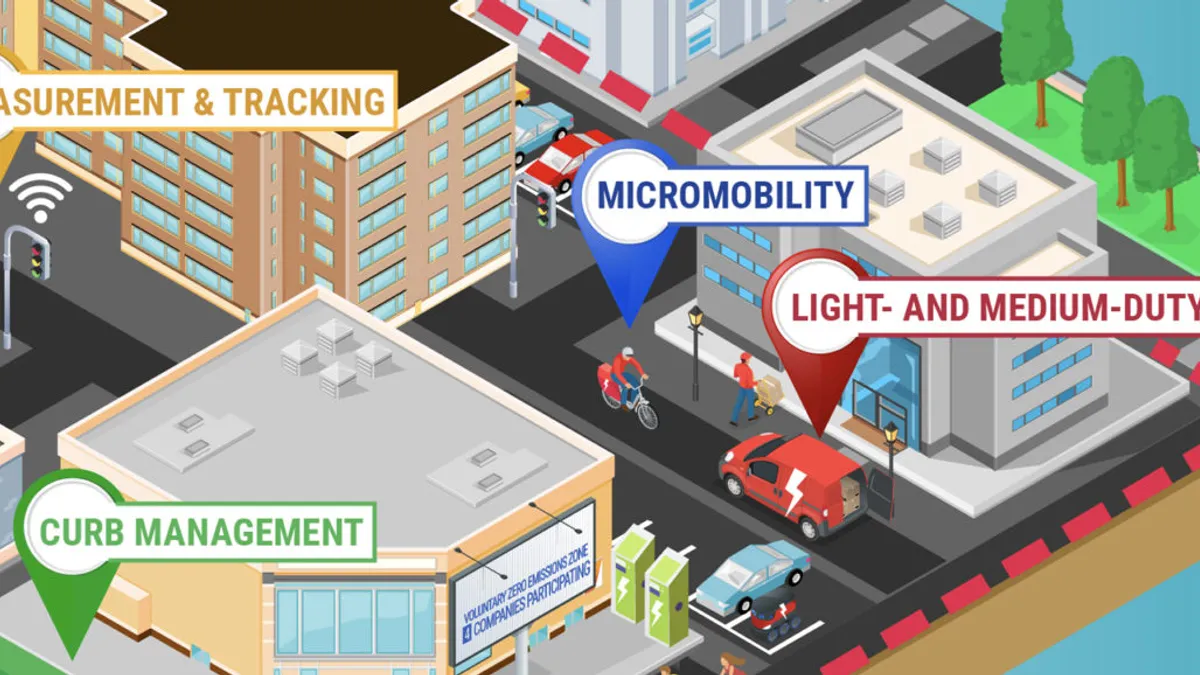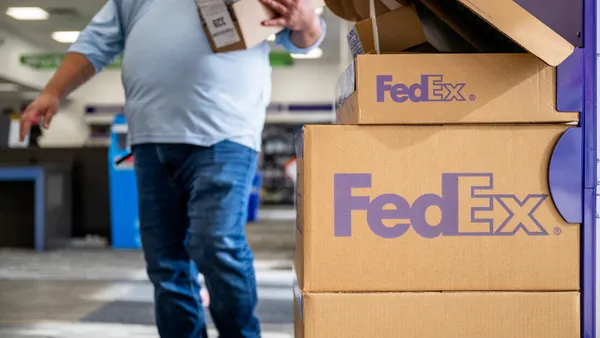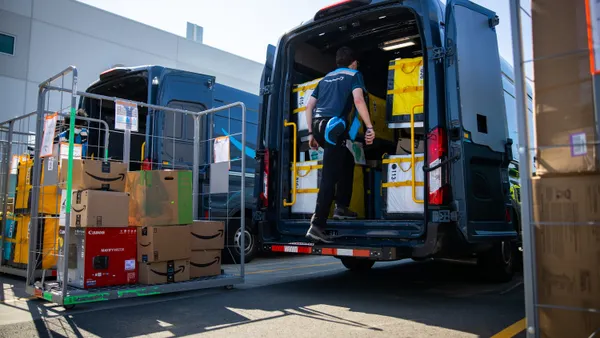Dive Brief:
- The City of Santa Monica, California, in partnership with the Los Angeles Cleantech Incubator (LACI) and others, is looking to pilot a first-of-its-kind voluntary zero emissions delivery zone, according to a recently issued request for information (RFI).
- The delivery zone, a one-square-mile area in the city's "commercial activity core," is home to Downtown Santa Monica and Main Street. The RFI says LACI and the city are eager to explore new technologies to cut delivery traffic in the zone, with solutions such as e-cargo bikes, curb management, light- and medium-duty electric vehicles (EVs), and measurement and tracking of pollution, congestion and other data points.
- LACI's Transportation Electrification Partnership (TEP) 2028 roadmap aims for 30% of all cars on the road to be electric by 2028, and other goals for reducing goods movement via cars and heavy- and medium-duty trucks.
Dive Insight:
As cities look to manage curb space and reduce congestion caused by large delivery trucks, they have increasingly turned to strategic partnerships and innovative solutions. New York City and Miami have launched e-cargo bike pilot programs, while Los Angeles partnered with London in an "Innovator Cities" collaboration to work on some of the biggest transportation challenges they both face.
A World Economic Forum report released in January found that cities will be "severely challenged" by e-commerce delivery traffic within the next one to three years. To avoid this outcome, particularly as e-commerce demand has exploded due to the coronavirus outbreak, the WEF recommends cities take a multi-pronged approach to reduce congestion and emissions — namely finding ways to consolidate orders and delivery routes, and/or deploy EVs, cargo bikes or drones to free up street space.
With the Summer Olympic and Paralympic Games set to descend on Los Angeles in 2028, LACI CEO Matt Petersen said the time is right to move away from old methods to try something new.
It will be "critical" to have legacy carriers — including UPS, FedEx and others — involved in the pilot, and Ikea has already committed to making deliveries in the region using 100 electric trucks, he said. Meanwhile, other delivery companies are committed to using more electric vehicles or autonomous vehicles, and Petersen said their partnership will be "critical to see how their drivers and their customers interact with this."
Technology providers, including startups, community organizations and nonprofits, are encouraged to respond to the RFI by June 29. LACI said delivery companies should not respond to the RFI, but are encouraged to submit innovative ideas to be considered in the pilot.
LACI and its partners are looking to try a variety of different delivery options in a bid to figure out what works, Petersen said. The pilot will give them room to learn about and experiment with innovative package and food delivery, as well as investing in infrastructure to support electric delivery trucks and bikes.
"We don't have all the answers, but it's going to include something that's a different form factor than a four-wheel vehicle in there," Petersen told Smart Cities Dive.















